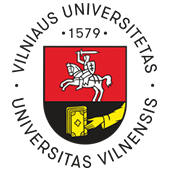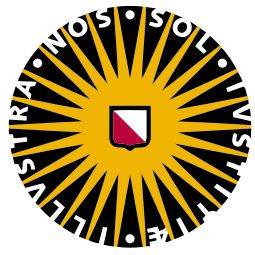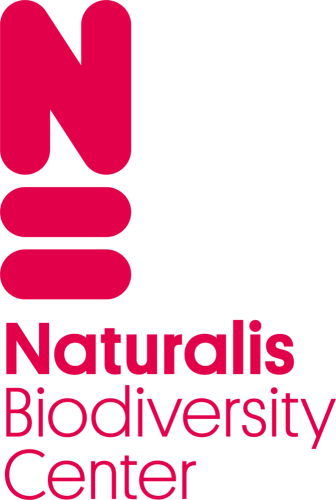AUSTRIA
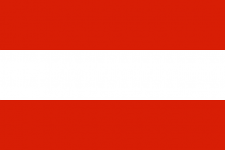
THE UNIVERSITY OF INNSBRUCK
The University of Innsbruck represents the largest Higher Education Institution in western Austria, individualized by its standing as vital social force. High quality dependant research, education and transfer of knowledge and skills have cemented the University’s success with Science Cafés and the cooperation between diverse shareholders. In bounds with one of the main topics of MOST, the University was able to pass on valuable knowledge and expertise, greatly beneficial to the project.
VEREIN KLASSE!FORSCHUNG (non-formal education provider)
The non-profit organisation „klasse!forschung” based in Tyrol, Austria, is a non-formal STEM education provider closely working together with 40 research organisations and enterprises. This network creates authentic, real-life scientific educational activities for schools, all whilst being the central hub for connecting schools, research, and business in the region of Tyrol. In 2019 alone over 2200 pupils aged between 6 and 19 years old have experienced topical and didactic methodology as a tool to drive digital transformation at an educational level, to increase the pupils’ interest for research and innovation. In the scope of MOST “klasse!forschung” is involved in networking, content and methods application and organisation.
ENERGIE TIROL
Energie Tirol is the official energy agency of the province of Tyrol, Austria. It was established as independent and non-profit organisation in 1991 and has since become an ambassador for the promotion of climate-friendly, environmentally sound and efficient use of, especially locally available, energy in the province. The agency closely cooperates with the University of Innsbruck, as well as with local schools, Tyrolian citizens and public and private institutions in their field. They offer a broad range of services ranging from awareness raising campaigns to education and counselling, as well as project management. In the scope of MOST Energie Tirol supplies their management experiences and takes care of material collection regarding energy management.
CZECH REPUBLIC

CHARLES UNIVERSITY (HEI)
The Charles University in Prague represents the largest education institution in the Czech Republic. It actively engages in international cooperation and promotes them within the framework of ERASMUS programmes. The Faculty of Education established an education programme focussing on Environmental Education and the integration of environmental stakeholders into this programme has been a significant differential for the university within the country. For this reason, Charles University caters to the smooth implementation of MOST in the Czech Republic, as well as using their networking experience to host fairs and conferences.
STREDISKO EKOLOGICKE VYCHOVY SEVER HORNI MARSOV, o.p.s. (non-formal education provider)
The Centre of Educational Education in the Czech Republic is considered one of the largest and oldest non-governmental organisations in the country responsible for scientific, environmental and sustainability education. Educational courses are offered to mostly primary and secondary school students. Furthermore, SEVER offers environmental counseling and help in public decision-making processes, to further community-based learning. The Centre closely cooperates with multiple national universities and coordinates school networks. In the bounds of MOST, SEVER will be involved in writing the manual to carry out several MOST aims and contribute their learning materials to the MOST collection.
GERMANY
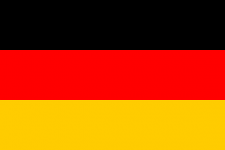
ICSE, University of Education Freiburg
The University of Education Freiburg is the hub for teacher education and educational science in southwestern Germany. It is represented by the highly qualified team of the International Centre for STEM Education (ICSE) and holds a key role in managing MOST. The innovative and successful approach to reform day-to-day schooling through cutting edge research has shone a spotlight on ICSE and therefore MOST, creating a national and international network of industry- and business partners in the endeavour. The cooperation of these influential partners with the Higher Education Institutions and schools enables MOST to fulfil its full potential in integrating communal problem-solving approaches in school curricula.
STADT FREIBURG (city)
The City of Freiburg oversees the education of approximately 33,000 pupils distributed in all types of schools and education levels. Its highest aim is to ensure successful outcomes for educational processes, for all its citizens regardless of their age to achieve the mission of life-long learning. Freiburg has been accredited as Green City since the 1970s and places a high emphasis on environmental education and therefore closely cooperates with representatives of different specialist areas within the fields of education, environment, and climate protection. The City of Freiburg supports MOST with communication, dissemination, and exploitation activities, due to its long-standing experience in communication with citizens, businesses, and educational actors.
WALTHER-RATHENAU-GEWERBESCHULE
The Walther-Rathenau-Gewerbeschule in Freiburg is a highly innovative and renowned vocational secondary school teaching STEM and ICT orientated courses and whilst encompassing 1300 students. The school uses innovative pedagogical methods, inquiry-based teaching, an in-house trade fair, as well as advising their students about their possible career paths through the vast network with industry and industry representatives, to achieve a high standard of education, which is demonstrated by numerous students receiving awards for special performance. In the scope of MOST the Walther-Rathenau-Gewerbeschule will support communication, dissemination, and exploitation activities, as well as conducting internal and external evaluations.
LITHUANIA
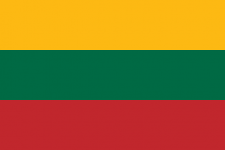
VILNIUS UNIVERSITY
As on of the oldest education providers in Central and Eastern Europe, Vilnius University exemplifies a large STEM potential, the connection between research and education as well as a strong collaboration with the country’s educational system. As parts of the university the Institute of Educational Science and the Institute of Data Science and Digital Technologies cooperate closely to join efforts in merging both approaches of continually pioneering modern education and ICT-methods within education to jointly improve teacher education. Vilnius University assists MOST with the hosting of large conferences, as well as supplying scientific and pedagogical material to the MOST Consortium.
VILNIUS CITY MUNICIPAL GOVERNMENT
The Vilnius Municipality has actively pursued promoting environmental awareness within its reach, with projects creating a circular economy, reducing the environmental impacts of transport and involving students in environmental science. Due to its strong ties to schools in- and outside the municipality, local communities, and stakeholders, as well as neighbouring municipalities, the Vilnius Municipality has established the Centre for Advancement of Education. Several schools have been equipped with state-of-the art equipment and modern technology workshops were established. Students from partner schools have received the opportunity to engage more actively in science. The Vilnius City Municipal Government is using its great network to the schools and citizens of Vilnius to pass on their knowledge to reduce waste, as well as implementing MOST in Lithuania.
MALTA
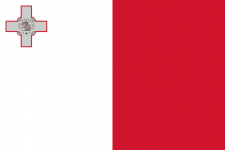
UNIVERSITY OF MALTA
Being the largest university of the Maltese Islands, it is singularized by its strong international academic exchange and has become a major driving force in shaping the development of the country’s teacher education. Thus, the Department of Mathematics and Science Education focuses on promoting innovative classroom practices that are in line with contemporary teaching and learning theories. Backed up with a lot of specific knowledge and teaching experience the university created the Centre for Environmental Education & Research (CEER) which has become an important environmental educational agency with a wide network to industry and policy.
WASTESERV MLTA LTD.
WasteServ Malta is a private company in charge of managing waste on the Maltese Islands, which is wholly state owned. It pursues the maximisation of extraction of recyclable materials and the generation of renewable energy. Furthermore, the company raises awareness, creates information-based campaigns, leads far-reaching initiatives, hosts educational programmes at schools and local events. In addition to educating the public and students, WasteServ also supports local NGOs. In relation to MOST WasteServ is involved in contributing to the MOST plan for communication, dissemination, and exploitation, as well as co-leading MOST conferences.
NETHERLANDS
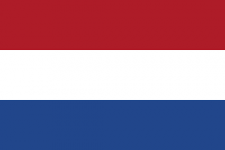
Utrecht University
The Freudenthal Institute for Science and Mathematics Education is part of the University of Utrecht which has pursued a pioneering approach in improving science and mathematics education by connecting STEM education with the world of work, therefore bridging the gap between formal and informal learning. The institute has been highly influential on the national descriptions of learning trajectories for the Dutch curricula, yet its network spans way beyond the country’s limits. In line with efforts made in MOST the university has made steps in integrating waste and energy into communal education.
STICHTING NATURALIS BIODIVERSITY CENTRE (non-formal education provider)
Naturalis is a non-profit organisation and the Netherland’s national research facility, whilst also serving as the country’s national natural history museum. The museum’s collection is one of the largest worldwide and the facilities and laboratories offer a state-of-the-art working environment for over 200 scientists, such as biologists and geologists. The protection of earths natural riches, biodiversity and climate change research, are the key drivers for research and necessary to convince the public to take even better care of nature. Naturalis will co-lead the European MOST Conference.
NORWAY
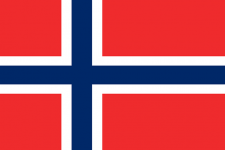
NORWEGIAN UNIVERSITY OF SCIENCE AND TECHNOLOGY
The Norwegian University of Science and Technology, Norway’s largest university, follows a highly international and diversified path at student education and research. The University collaborates with over 1000 partners globally thus bolstering its focus on STEM and ICT. The associated Department of Teacher Education distinguished itself by integrating problem-based learning methods, as MOST encourages, to equip future teachers with the right tools to become independent, creative and critical actors in the professional community and in society.
DUCKY AS
Ducky AS is backed by a non-profit foundation based in Norway. Their main driver is to supply a digital platform centered around climate change mitigation and sustainability education. To achieve this goal the platform includes awareness campaigns, climate competitions and education material, a way to track individual and personal activities in an environmental context, as well as comprehensible climate change data. These offers are aimed to influence individuals, schools, organisations, policymakers and businesses to increase engagement for sustainability and climate action. In the context of MOST Ducky assists with environmental knowledge, changing environmental behaviour and relays its expertise on communication environmental expertise to communities.
BIRRALEE INTERNATIONAL SCHOOL
The Birralee International School in Norway is an English medium school comprising of more than 250 students from all over the world. The curriculum is strongly based on international, Cambridge and IGCSE standards, which is being complimented by including Norwegian language studies and cultural heritage studies of their home or host country. The school’s ambition is to develop thoughtful and successful students, through the internal learning community to further positive contributions to the world. Year 8 to Year 10 students are being taught in the scope of the Community Builder programme, which includes cooperation with a Norwegian University and science fairs. As a member of the Eco Schools the school assigns an environmental challenge for the students to work on. Birralee International School will contribute the perspective of a school to co-lead the execution and planning of School-Community-Projects.
SPAIN

UNIVERSITY OF JAÉN
The University of Jaén in Spain, medium in size, is one of the 50 most outstanding young universities worldwide according to THE (Times Higher Education). All teaching staff of the university have a distinct background and expert knowledge in the field of teacher education and evaluation of innovative teaching programmes and materials. In this line, partners have published and disseminated quantitative and qualitative research results in scientific forums expanding their knowledge about how to best support teachers in the use of innovative pedagogies. This qualifies the University of Jaén to take on the monitoring and evaluation of the MOST project based on data analysis.
AGENCIA ESTATAL CONSEJO SUPERIOR DE INVESTIGACIONES CIENTIFICAS
The Spanish Research Council is Spain’s largest public research institution and is among Europe’s largest research organisations. Part of the Spanish Ministry of Science, Innovation and Universities it takes on an important role in Spain, as well as internationally. Its main missions include to foster multidisciplinary research, to facilitate the transfer of knowledge between industry and society. As a part of these aims the National Museum of Sciences plays a fundamental position. Information and various research are shared to multiple societal groups to establish mutual trust and collaboration with other institutions. This falls into the MOST mission, so that the Spanish Research Council will be involved in the Evaluation of MOST, as well as carrying out networking and the MOST plan for communication, dissemination, and exploitation.
SWEDEN

JÖNKÖPING UNIVERSITY
Jönköping University is a young, yet highly internationally linked university in Sweden. Its main focus is on the establishing an entrepreneurial spirit and to collaborate closely with the surrounding society and businesses. Furthermore, high emphasis has been put on the research of and the establishing of environmental education as well as on sustainable development educational programmes. Due to its fitting approach the university implements MOST in Sweden backed through its experience in hosting conferences, open schooling and outdoor learning.
UPPTECH
Upptech is a Swedish Science Centre owned by the municipality of Jönköping. The Science Center conducts joint projects with all stages of school, universities and especially with local schools. The essence of Upptech is the playful learning and discovery process by using all human senses. The subjects revolve around technical and natural science and are designed for all age groups. Certain activities such as the Nature school and the Ecology bus take place in the outdoors. Furthermore, a strong cooperation between several Higher Education Institutions and local offers, such as the municipal entrepreneurship and technology school promote a regional meeting and education space for all involved. Upptech co-implements MOST in Sweden and offers its expertise in running projects in natural sciences and ecology.
TURKEY
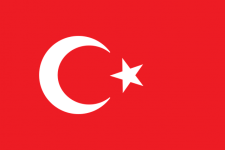
HACETTEPE UNIVERSITY
Hacettepe University is one of the largest universities in Turkey. The Faculty of Education bundles highly qualified staff, international cooperation, openness, extensive STEM experience and a broad network of different (STEM) stakeholders, all whilst being one of the founding members of ICSE. With the implementation of the new Turkish Science Curriculum the university was able to establish a system where the different achievement levels, the social and emotional skills of students are considered whilst teaching. In the context of MOST Hacettepe University oversees the communication, dissemination and exploitation of MOST fairs and conferences, due to a high level of expertise and success in this area.
MINISTRY OF NATIONAL EDUCATION TURKEY
The Directorate General of Life Long Learning within the Ministry of National Education in Turkey is a public body with the main responsibilities of supplying education to those of Turkey’s citizens who are unable to access formal education. So far more 30 million people have been trained in over 1000 non-formal education centers across Turkey, the subjects including STEM, ICT, foreign languages, crafts and many more disciplines, since 2008. The Directorate General of Life Long Learning cooperates closely with Hacettepe University and diverse industry partners to implement MOST in Turkey. Its role with in MOST is the review of the organisation plan for the European MOST conference, as well as the review of the MOST plan for communication, dissemination, and exploitation.
European Support Team
The European Support Team (EST) is an advisory board and involves external experts across Europe with educational or STEM/environmental background. We are very happy that the following experts contribute to the success of MOST with their expertise:
- Michele Artigue, Paris Diderot University
- Geert Asselbergs, EU STEM Coalition
- Katrin Engeln, STEM related pedagogical research, Kiel
- Agueda Gras-Velazquez, European Schoolnet, Brussels
- Andreas Ch. Hadjichambris, European Network for Environmental Citizenship, Cyprus
- Andrew Howes, Manchester University
- Annette Klinkert, European Science Engagement Association
- Bedřich Moldan, Charles University, Prague
- Maryte Skakauskiene, Ministry of Education and Sciences, Lithuania
- Annita Westenbroek, Royal Netherlands Paper and Board Association









